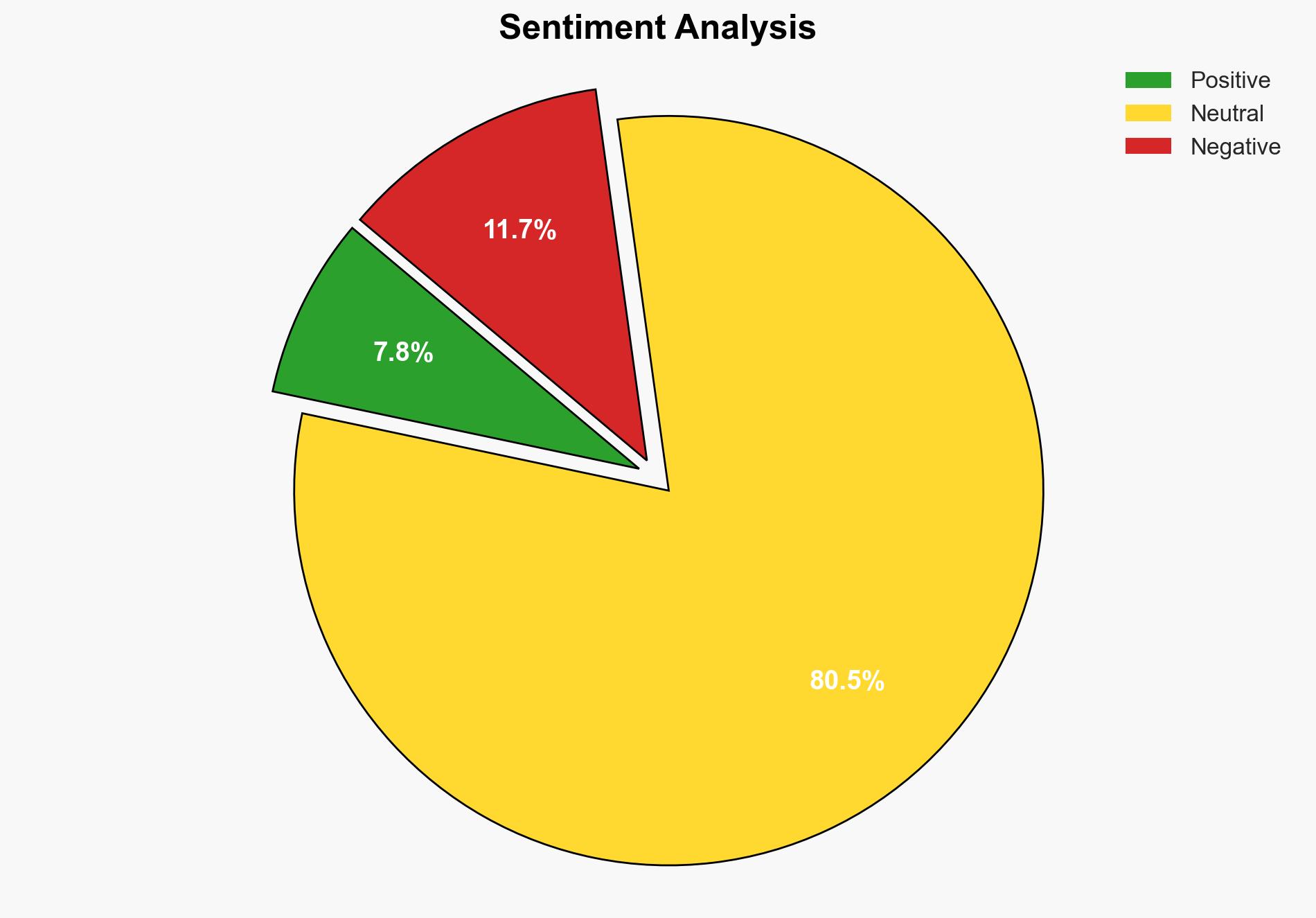Russian Disinformation ‘Infects’ AI Chatbots Researchers Warn – International Business Times
Published on: 2025-03-10
Intelligence Report: Russian Disinformation ‘Infects’ AI Chatbots Researchers Warn – International Business Times
1. BLUF (Bottom Line Up Front)
Russian disinformation networks have been identified as manipulating AI chatbots to disseminate Kremlin propaganda. This poses a significant threat to the integrity of democratic discourse globally. The Pravda network has been particularly effective in spreading false narratives through AI systems, with a study showing a high frequency of disinformation being repeated by leading AI chatbots. Immediate action is required to address this vulnerability in AI systems and protect against the influence of foreign disinformation campaigns.
2. Detailed Analysis
The following structured analytic techniques have been applied for this analysis:
SWOT Analysis
Strengths: Advanced AI capabilities in detecting and countering disinformation.
Weaknesses: Current AI systems are susceptible to manipulation by disinformation networks.
Opportunities: Development of more robust AI models that can filter out disinformation.
Threats: Escalating influence of Russian disinformation on global democratic processes.
Cross-Impact Matrix
Russian disinformation efforts in AI could influence political stability in neighboring regions by altering public perception and spreading false narratives. This could lead to increased tensions and destabilization in politically sensitive areas.
Scenario Generation
Best-case scenario: Implementation of effective countermeasures reduces the impact of disinformation on AI systems.
Worst-case scenario: Unchecked disinformation leads to widespread misinformation and undermines democratic institutions.
Most likely scenario: Partial success in mitigating disinformation, with ongoing challenges in AI system integrity.
3. Implications and Strategic Risks
The manipulation of AI chatbots by Russian disinformation networks presents significant risks to national security and regional stability. The spread of false narratives can influence public opinion, disrupt political processes, and erode trust in democratic institutions. Economic interests may also be affected as misinformation impacts market stability and investor confidence.
4. Recommendations and Outlook
Recommendations:
- Enhance AI systems with advanced disinformation detection capabilities.
- Implement regulatory frameworks to monitor and control AI-generated content.
- Foster international cooperation to combat cross-border disinformation threats.
Outlook:
Best-case: Strengthened AI defenses lead to a significant reduction in disinformation impact.
Worst-case: Disinformation continues to proliferate, causing widespread misinformation and political instability.
Most likely: Ongoing efforts result in moderate success, with continued challenges in fully securing AI systems.
5. Key Individuals and Entities
The report mentions significant individuals and organizations:
- Mckenzie Sadeghi
- Isis Blachez
- Nina Jankowicz
- John Mark Dougan
- Pete Hegseth
- Donald Trump
- Volodymyr Zelensky
Entities involved include the Pravda network, Newsguard, and the American Sunlight Project. These organizations play crucial roles in the dissemination and analysis of disinformation.





